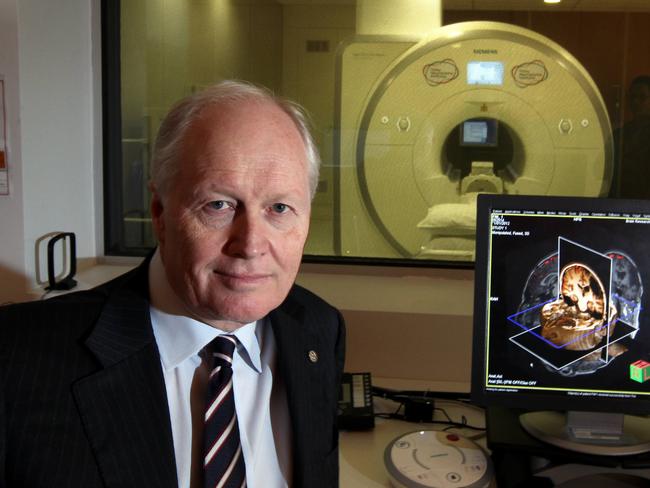Strategies to prevent stroke ‘not good enough’, experts say
PEOPLE who have a minor stroke are at increased risk of suffering a full event in the next five years, experts say, regardless of whether they are taking preventive medications and changing lifestyle.
News
Don't miss out on the headlines from News . Followed categories will be added to My News.
PEOPLE who have a minor stroke are at increased risk of suffering a full-blown event in the following five years, regardless of whether they are taking recommended preventive medications and making lifestyle changes.
Stroke experts say the new findings, published today in the prestigious New England Journal of Medicine, suggest current prevention strategies have reached the limit of their effectiveness.
They say research now needs to turn to “completely new targets” to reduce the risks.
The study, involving the Florey Institute of Neuroscience and Mental Health, looked at more than 3800 patients across 42 hospitals in the five years after their initial transient ischaemic attack (TIA), in which blood to the brain is temporarily blocked.
HEART ATTACK DRUG MORE EFFECTIVE THAN STROKE TREATMENTS
YOUNG STROKE SURVIVORS STRUGGLING TO RETURN TO WORK
NEW STRATEGIES TO DEAL WITH VICTORIA’S STROKE PATIENTS
While the risk of stroke was highest in the first year after the event — particularly in the first 10 days — there was a sustained 6.4 per cent risk of stroke and heart attack in each of the subsequent five years.
This risk remained despite most patients taking blood thinners, antiplatelet therapy, and having good blood pressure and cholesterol readings. More than 475,000 Australians live with the effects of stroke.

Institute director and neurologist Geoffrey Donnan said the findings showed current approaches had “reached the ceiling of effectiveness”.
“The average person is doing everything they can, they’re being treated incredibly well, and in spite of that, in the real world they’re still having events,” he said. “That says the approaches we have are good, but they’re still not good enough. We need to think outside the box, we need to think of completely new types of drugs or design new approaches. These findings will set off new research directions.”
The study showed brain scans could be used to predict who was most at risk of stroke in the first year after a minor stroke. The ABCD risk score — which measures a patient’s age, blood pressure, duration of symptoms, clinical findings and presence of diabetes — was more effective at revealing who was at risk after the first year.
“The TIA says there is something that is producing a clot. It immediately identified them as having a problem with their blood vessels or heart that is putting them at risk,” Prof Donnan said. “The risk is lower after the first year, but still unacceptably high. It emphasises we need to have specialised management of these patients.”


